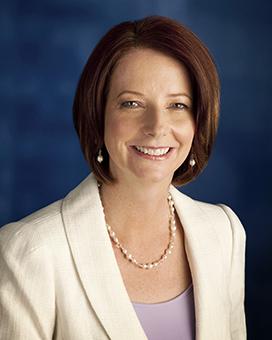Early career
Born on 21 September 1957, Kevin Michael Rudd recalled an idyllic childhood, growing up on a 500-acre farm at Eumundi, in the hinterland of Queensland’s Sunshine Coast. The youngest of 4 children of sharefarmers Bert and Margaret Rudd, he attended Eumundi Primary School.
When he was 11, the childhood idyll ended when Bert Rudd died in February 1968 after a car accident. The family was separated during Rudd’s last year at primary school. Then Margaret Rudd retrained as a nurse at Brisbane’s Mater Hospital, where she had nursed during World War II, with Rudd boarding for 2 years at Marist Brothers College, Ashgrove. When Margaret Rudd secured a job at Nambour Hospital, Rudd finished his schooling at Nambour State High School – where the school captain was Wayne Swan, 2 years his senior.
Rudd joined the Australian Labor Party in 1972, at the age of 15. In 1975, he was dux of his school. He spent a year in Sydney before enrolling in Asian studies at the Australian National University in Canberra in 1977. He specialised in Chinese history and language, graduating in 1981 with first class honours for his thesis on Chinese dissident and democracy campaigner Wei Jingsheng. The same year, he and fellow graduate Thérèse Rein were married, and Rudd joined the Department of Foreign Affairs as a cadet diplomat. He served in Australia’s embassies in Stockholm and then Beijing, returning to Canberra in 1986. Fluent in Mandarin, by 1988, Rudd held the rank of Counsellor in Australia’s diplomatic service.
Into politics
In 1988, the couple returned to Queensland with their 2 children, 4-year-old Jessica and 2-year-old Nicholas – who later returned to China to study at Fudan University in Shanghai. Granted extended leave by the Secretary of the Department of Foreign Affairs, Richard Woolcott, Kevin Rudd worked on the election campaign of state Labor Opposition leader Wayne Goss. In a historic win at the 1989 state election, Wayne Goss became the first Labor Premier of Queensland since Joh Bjelke-Petersen had wrested government from Labor 33 years before. Rudd became the new Premier’s Chief of Staff, and from 1991 to 1995 was Director-General of the Cabinet Office. In 1993, the Rudds’ youngest child, Marcus, was born in Brisbane, and the following year the family moved into a house in an inner Brisbane suburb near the Brisbane River.
From 1993, Rudd chaired a national strategy committee on teaching Asian languages in schools for the Keating government. President and secretary of his local Bulimba branch of the Labor Party from 1994 to 1998, in 1996 Kevin Rudd was preselected as Labor candidate for the federal seat of Griffith after the retirement of Ben Humphreys, who had held it for Labor for nearly 20 years. Labor had held government since 1983, first with Bob Hawke as Prime Minister then Paul Keating, but at the 1996 election a Coalition government was returned, with John Howard as Prime Minister. The seat of Griffith was one of those taken by the Liberal Party.
In Opposition
Rudd contested the seat again at the 1998 election and won, entering the House of Representatives at the age of 41. He was appointed to the Parliamentary Labor Party’s Committee on National Security and Trade and was elected Chair. In June 1999, he was a member of Australia’s observer mission to the Indonesian election and in August 2001, an Australian parliamentary delegation to East Timor.
Rudd increased his lead in Griffith at the 2001 election and from 22 November 2001 was Labor’s Shadow Minister for Foreign Affairs, with responsibility for international security added on 8 December 2003 and for trade on 24 June 2005. He travelled with parliamentary delegations to Japan in November 2002 and to the United States in September 2003, and also visited the United Kingdom in November 2003.
On 4 December 2006, the Parliamentary Labor Party held the leadership ballot that replaced Kim Beazley and made Rudd the 19th Leader of the Australian Labor Party.
At the APEC forum in Sydney in September 2007, Rudd addressed the President of China Hu Jintao in Mandarin, recalling his family’s life in Beijing with affection.
After Prime Minister John Howard announced the date for the federal election, Rudd launched the official Australian Labor Party campaign for the 2007 election on 14 November at the Queensland Performing Arts Centre.
On 24 November 2007, Labor won government from the Coalition with an 18-seat majority in the House of Representatives.
From the National Archives of Australia collection
- Inquiry into Certain Australian Companies in Relation to the UN Oil-for-Food Program: Submission on behalf of Kevin Rudd MP, 10 March 2006, NAA: A13333, WST.28.25
- National Asian Language and Studies Strategy in Australian Schools EEC SPD, 1993–1994, NAA: A463, 1994/2445 and 1994/4357
- National Security and Trade Shadow Cabinet Policy Committee – agenda and papers, Feb–Sep 1999, NAA: M4662, 171





